Current Fellows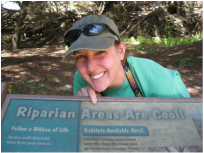
Molly Van Appledorn
Molly is a Ph.D. candidate in the Department of Geography & Environmental Sciences at the University of Maryland Baltimore County. Her interdisciplinary research on riparian forest ecosystem dynamics is largely motivated by practical conservation and restoration issues that surround these systems and a genuine love of their beauty and complexity. Before landing in Maryland, Molly worked various field jobs throughout the country, taught environmental science and ecology in Minnesota and Wisconsin, and earned her bachelor of science degree from the University of Michigan and a master of science from Utah State University. Everywhere she has lived she has enjoyed exploring the nooks and crannies that make each place unique, which has cultivated a deep appreciation for the diversity of environment, people and ideas. 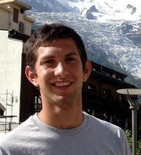
Riley Balikian
Riley is pursuing dual master's degrees in Environment and Resources and Urban and Regional Planning at the University of Wisconsin-Madison, and focusing on food systems and community development. His thesis will be on the effect of increasing water rates in San Diego County on small Avocado farmers there. He is an affiliate of the Kaufman Lab for the Design and Study of Food Systems and Marketplaces on campus, and is on the steering committee for Young Evangelicals for Climate Action. He graduated from Wheaton College ('12) with degrees in Geophysics and Bible/Theology and a certificate in Human Needs and Global Resources. Spare time is thin in graduate school, but when he gets it, Riley enjoys riding his bike and playing basketball. Things Riley wants to learn: how to fish, how to salsa dance, how to draw, and how to fix a car. 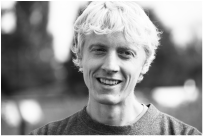
Nick Turman-Bryant
Nick is a masters student at Humboldt State University in Arcata, California. He is pursuing an interdisciplinary degree in energy, technology, and policy, which means he can unabashedly indulge his love of engineering, environmental science, economics, and social science. His current research is related to sustainable energy access in Sub-Saharan Africa, and he gets excited about small solar lamps that are less expensive, less harmful, and less polluting than kerosene. Before graduate school, Nick worked for eight years with a ministry in Washington State and Honduras called Tierra Nueva. Nick helped coordinate several income-generating enterprises and also managed a five-acre organic farm. When he's not studying, Nick loves to share meals, hear stories, and play games with his wife, toddler, and friends. 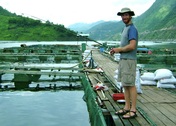
Keith Bouma-Gregson
Keith is a MS student in aquatic sciences at the University of Michigan in the School of Natural Resources and Environment. He is studying the environmental impacts of aquaculture production in Asia, and researching new ways to ecologically reduce aquaculture waste products. His interests include understanding the trophic and nutrient linkages in ecosystems and how human influences affect and alter them.Keith did his undergraduate degree at Westmont College studying Sociology. Prior to Michigan Keith led wilderness backpacking trips for Summit Adventure, a faith based wilderness expedition organization, and worked at LCC International University in Lithuania as the Intercultural Programs Coordinator. After several years of focusing on the social sciences, Keith wanted to shift focus to the environmental sciences to better inform communities and churches about creating sustainable relationships with natural resources and creation in general. He is also very interested in the philosophy of science and how better to communicate scientific information to the public. When not studying he enjoys rock climbing and camping, and is currently attending the Campus Chapel in Ann Arbor. 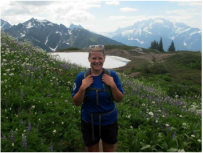
Katelyn Geleynse
Katelyn is a PhD student in the Botany Department at UW-Madison where she is studying the impacts of abiotic stressors (particularly drought) on plant physiology. Having grown up in the Pacific Northwest, her love for nature was inspired by trips with her grandfather (a biologist himself) to nearby forests, mountains and streams—always with plastic collection jars and binoculars in hand. Katelyn obtained her B.S. in biology from Calvin College where she was blessed with many opportunities to integrate her faith with science—including a summer of research & classes at Au Sable’s Pacific Rim campus, a summer working as the Creation Care Intern at Intervarsity’s Cedar Campus and a trip to the Galapagos Islands and Amazon Rainforest. After graduating from Calvin, she spent a year traveling around the U.S., working various seasonal jobs with the University of Minnesota, Rocky Mountain Youth Corps in Taos, NM and at a berry farm in her hometown of Lynden, WA. Katelyn is actively involved in UW-Madison’s IV-GCF chapter and in her free time enjoys hiking, camping, kayaking, yoga and playing violin. 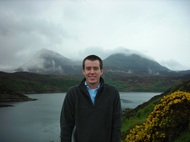
Brad Gordon
Brad is a PhD student in Water Resources Science at the University of Minnesota. He received his BS in Biology from the University of Northwestern – St. Paul in 2010. At that time he studied wolf behavior and ecology as well as squirrel population dynamics in urban forests. He later received his MS in Environmental Science from Taylor University in 2013. While at Taylor, he studied the use of best professional judgment for establishing vegetative quality benchmarks in habitat restoration. Taylor also provided Brad an opportunity to use his passion for teaching non-science majors about their relationship with and impact on the environment from a biblical perspective. Brad used this platform to teach students how God’s creation reflects His character, God uses creation to teach us more about Him, and creation prepares hearts for the gospel. He is currently studying the relationship between vegetative cover for best management practices and erosion reductions in the Minnesota River Basin. His career goals are to continue his work in ecological restoration and to teach people about the ecological and biblical importance of caring for God’s creation. He enjoys being involved in small group Bible studies, reading, playing and listening to music, exploring natural areas, gardening, cooking, and coffee. 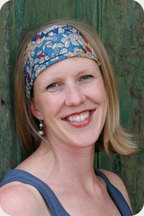
Kiara Jorgenson
Kiara is a Ph.D. candidate at Luther Seminary in St. Paul, Minnesota. Her doctoral work is in the area of ecological vocation of the Christian. Her experiences in the Middle East and in India have shaped her understanding of the pressures being placed on God's creation. She has taught Christian ethics and environment in both a Christian camp setting and at the high school and college level. Kiara is pursuing a Ph.D. in the conviction that the church can be a major force to affect the ecological crisis for good. For this to happen, Christians will have to live out their ecological responsibilities as part of their vocation. 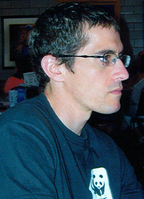
Scott Kalafatis
Scott is pursuing a PhD in Resource Policy and Behavior at the School of Natural Resources and the Environment at the University of Michigan. His work examines what shapes our efforts to protect ourselves from the projected impacts of climate change. He believes that through coming to terms with this century’s global challenges, we are called to critically examine the values system that led us to this point and how this discussion can be informed by Catholic teachings. He has completed a dual MS/MUP at Michigan and a BA in English from the University of Virginia. His background has taken him back and forth from the wilderness to the inner-city and he has heard the call to service in both. 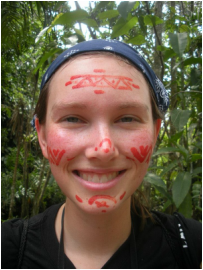
Geneva Langeland
Geneva is pursuing her master's degree in environmental policy at the University of Michigan School of Natural Resources and Environment. She hopes to use her background in ecology and writing to help the scientific community translate research findings into real-world policy applications. Geneva graduated in 2013 from Calvin College with a biology degree and a writing minor. Her interest in creation care stems from a passion for the natural world and a desire to restore shalom in any way she can. She got a taste of this while volunteering with the Plaster Creek Stewards in Grand Rapids, MI, and she's excited to see what her time with the Au Sable Fellows might bring. When she's not writing papers, Geneva loves to read, play the piano, wander outdoors, explore Ann Arbor by bicycle, and play with her roommate's cats. 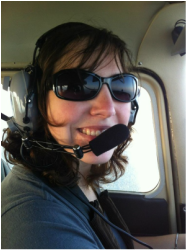
Jamie McArdle
Jamie completed her Bachelor of Social Work at Wayne State University and after working in long term care for three years decided to go back for a Master’s degree in the field of Landscape Architecture. While these two areas may seem to not have anything in common, she is interested in enacting change for people by bettering their environments. Her research includes elements of nature that can effectively improve mood and affect as well as overall well being. Some specific ways she would like to enact this is with urban gardens, prayer gardens and healing gardens. 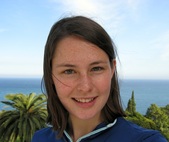
Amanda McMillan
Amanda is a graduate student in Community and Environmental Sociology at the University of Wisconsin-Madison, working towards her MS/PhD. She is particularly interested in agriculture as a mechanism of community re-establishment, environmental conservation, and sense of “home” in post-disaster scenarios. After graduating from Messiah College in Pennsylvania, Amanda worked as the assistant to the founder of A Rocha, a Christian conservation organization, in France. She returned to the US in 2009 to polish her skills of phone-answering as a receptionist at an engineering firm. She also worked part-time as an afterschool agriculture club coordinator at an urban garden in Harrisburg, PA. Amanda is very happy to be back at school, particularly in such a bike-friendly, sunny city as Madison. She is involved with Intervarsity Christian Fellowship and Geneva Campus Church. Amanda’s playtimes include swing and folk dancing, hosting board-game nights, and chatting with friends in coffee shops. 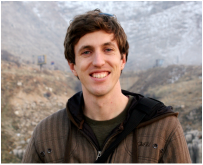
Remington Moll
Rem is a National Science Foundation Graduate Research Fellow currently pursuing a Ph.D. in Fisheries and Wildlife at Michigan State University. He received B.S. and M.S. degrees in Wildlife Science from the University of Missouri. Rem’s research focuses on large mammal movement ecology, predator-prey interactions, and the philosophy of statistical modeling. Before coming to Michigan State, Rem and his family ministered overseas in Lebanon, where he taught high school science and his wife provided medical care to Syrian refugees. Rem feels that the redemption believers find in Christ should extend through them to all creation. To that end, he seeks to study, conserve, promote, and cherish the natural glories of God’s earth and inspire others to do the same. Will Pluer
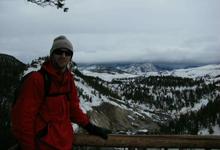
Will is pursuing a MS/PhD in Water Resources Engineering at Cornell University, working in the Soil and Water Lab of the Biological/Environmental Engineering department. His research concentrates on systems designed to encourage microbial processes to remove excess nitrogen from agricultural runoff. He completed his BS from NC State University in Biological Engineering focusing on design of best management practices for urban stormwater treatment. While an undergraduate, he studied abroad in Ecuador and the Galapagos Islands for a semester, studying interactions between marine ecosystems and communities. Through this trip, and countless other awe-inducing experiences in creation, Will feels blessed to be in a field that allows him to work outdoors and care for a passion of his. He is excited to be joining a community in Ithaca that values God’s beautiful creation, and he looks forward to exploring his role its stewardship as he pursues his call to be a professor. In his free time, he enjoys volleyball, cooking, and reading, and is always up for a good outdoor adventure.
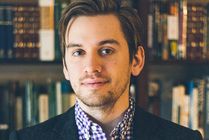
Russ Powell
Russ is a PhD student at Princeton Theological Seminary in the Religion and Society program, concentrating on religious ethics and social criticism. He is especially interested in the intersection of such theological themes as awe, wonder, and gratitude with the aesthetic experience of the natural world. Russ is a candidate for ordination in the Presbyterian Church (USA) and sees his work as contributing both to academic discourse as well as local church congregations, particularly on issues related to environmental sustainability, local activism, and community organizing. Born and bred in the Piedmont Triad of North Carolina, and also having grown up in central Alabama, Russ received his bachelor's from the University of North Carolina at Charlotte and Master of Divinity from Yale Divinity School. He has worked as a research fellow at the Beinecke Rare Book and Manuscript Library and as a research associate with the Forum on Religion and Ecology, both at Yale University. Additionally, Russ has instructed or helped to instruct courses at Yale, Princeton Theological Seminary, and Princeton University on topics ranging from moral philosophy to church leadership, Reinhold Niebuhr to Buddhism. He lives in Princeton, NJ with his wife, Kristy, and daughter, Adiah. 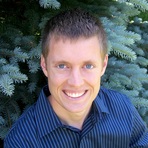
Steve Roels
Steve is a doctoral student in the Department of Zoology at Michigan State University. His research focuses on avian ecology and bird-insect-plant trophic cascades in Panamanian forest restorations. He received his MA from the University of Kansas in 2011, where he studied the ecology of a threatened prairie milkweed. Prior to his master's research, he worked for a land trust creating conservation easements on prairies and agricultural lands in Kansas. His interest in creation care originally blossomed at Calvin College, where he completed his BS in biology in 2006. He maintains in active interest in the intersections of science and faith, particularly ecology, evolutionary biology, and Reformed theology. When he gets restless from long stretches at the computer, he wanders into his backyard to work on habitat restoration for wildlife and insect pollinators. Derek Rosenberger
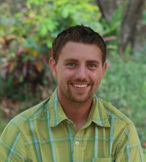
Derek is a PhD student in Entomology at the University of Minnesota studying forest entomology and conservation biology. Derek’s research is in invasion ecology and involves studying the mountain pine beetle’s ecological and climatic potential for successful incursion from its native western range into eastern pine forests due to newly warmed northern corridors. Derek received his BS from Messiah College in Biology with a minor in Environmental Science. He has taken courses at Au Sable’s campuses in Michigan, Washington, and India. While at the India program he got to know Ashley Beck, a fellow student who he eventually married. Following Messiah Derek interned at ECHO where he studied tropical agricultural development in rain forests. He then completed an MA from Taylor University in Higher Education with thesis research in environmental service learning. Most recently Derek and Ashley directed the Creation Care Study Program in Belize, a study abroad program focusing on the intersection of ecology, sustainable development and faith and environmental ethics. Derek and Ashley have a young son named Isaac who lives up to his name and is a source of much joy and laughter.
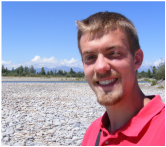
Doug Sponsler
Doug is a Ph.D. student in the Ohio State University Department of Entomology, where he explores honey bee foraging and pesticide exposure using the novel tools and concepts of spatial ecology. He received his B.S. in biology from Cedarville University in 2010, having spent the summers of 2008 and 2009 at Au Sable’s Great Lakes campus. While Doug has nurtured entomological aspirations since early childhood, he owes his first formal training in the discipline to Dr. Tim Burkholder, whose insect ecology course at Au Sable was instrumental in preparing Doug for his present studies. Doug enjoys his work immensely, but his favorite part of each day is coming home to his wife, Molly, and their early-instar daughter, Eleanor. On free evenings, Doug likes to pick up a variety of stringed instruments, most of which he can only barely claim to play, and make folksy sounds with them--both Molly and Eleanor are usually entertained. When he is able to pursue extracurricular studies, Doug is drawn strongly to biblical theology and church history, motivated by the ever-pressing need to figure out how the Gospel is to be preached, believed, and lived in today’s world. 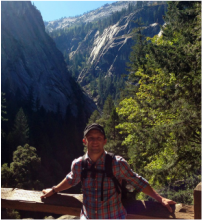
Trevor Sutton
Trevor is a master’s student in Digital Rhetoric and Professional Writing at Michigan State University. He holds a Master’s of Divinity from Concordia Seminary (St. Louis, Missouri) and a B.A. in English from Concordia University (Ann Arbor, Michigan). While studying at Concordia Seminary, he co-authored a book (Creature Life, forthcoming 2015) on environmental stewardship with Dr. Charles Arand published by Concordia Seminary Press. His research interests are in the role of location in rhetoric, the rhetoric of environmental stewardship, and the dialogue between faith and science. He resides in Lansing, Michigan and serves as a pastor of a Lutheran congregation. 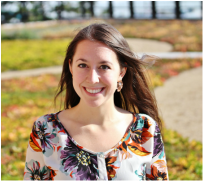
Katie Todd
Katie is a MS student in Entomology at The Ohio State University where she is studying how urban green space design in Cleveland, OH impacts wasp communities and niche partitioning of arthropod predators. She is broadly interested in researching ways to restore or improve ecological communities in human-dominated environments- especially urban or agricultural. Previously, Katie has worked at Pennsylvania State University, Michigan State University and the University of Connecticut where she conducted a spectrum of entomological research ranging from native pollinator conservation to emerald ash borer ecological impacts and moth rearing. Katie graduated from Messiah College in May, 2013 with a B.S. in Environmental Science and a B.A. in English. At Messiah, Katie was a member of a sustainable living community, the Restoration House, and was heavily involved with Joshua Farm, an urban farm in Harrisburg, PA. Since her junior year in college, Katie has also served with Young Evangelicals for Climate Action (YECA), an organization devoted to mobilizing Christians towards climate action in faithful witness to God’s commandment to care for our neighbors (http://www.yecaction.org/). She is a member of St. Stephen’s Episcopal Church in Columbus, OH and enjoys throwing pottery, reading novels, and spending time with her cat, Poppy. 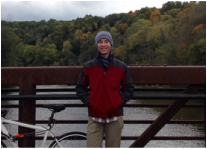
Cody Yarbrough
Cody is a masters student in Environmental Engineering and Sustainable Systems at the University of Michigan. Before coming to Ann Arbor he studied Physics and Math at Azusa Pacific University, where he also developed a passion for environmental stewardship after doing research in Christian and environmental ethics. Most recently, this interest has taken the form of local stream restoration projects within the Huron River watershed as well as research involving the use of artificial spawning reefs in the Great Lakes. Throughout his education, his primary interests have been focused on water resource and sustainability issues in the developing world, especially as they relate to missiology. When Cody is not studying or spending time with his amazing church family (Antioch Ann Arbor), he loves to read, play soccer, and do just about anything outdoorsy. Alumni Fellows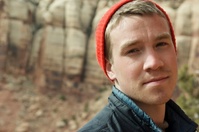
Jesse Antuma
Jesse is pursuing a MS degree in Conservation Ecology from the University of Michigan, School of Natural Resources and Environment. His BS was completed at Calvin College where he studied biology and Spanish. He also was heavily involved in the Recreation Department where he managed the climbing wall and designed and led extended outdoor trips for Calvin’s Wilderness Orientation program. It was this experience that brought together his passions for the natural world, education, and outdoor recreation. Jesse believes God’s creation is a wonderful teacher, a gift that has the capability to clear one’s mind and heart, bring people closer together and ultimately, closer to God. Jesse is at SNRE to further develop his interdisciplinary studies and increase the depth of his scientific knowledge, with special interests in botany and ecology, so that he can better perceive and share God’s presence, as can be found in the natural environment, to those he is with. It is Jesse’s career goal to continue (re)introducing God’s creation to people with hopes that it will incite within them not only a greater appreciation and emotional connection to the natural world but also to the one who created it. He enjoys spending time with his wife Jorie, watching movies, reading, rock climbing at the local climbing gym, baking bread and being outdoors. Brian Aukema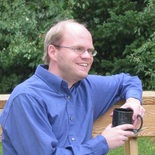
Brian is an assistant professor in the Department of Entomology at the University of Minnesota. Prior to joining the faculty at UMN in 2010, he was a research scientist with the Canadian Forest Service, Natural Resources Canada, with an adjunct faculty appointment at the University of Northern British Columbia in Prince George, British Columbia. His research expertise lies in forest entomology. Some of his most influential life experiences occurred on the Au Sable Great Lakes campus in the mid-90s as an undergraduate student. The Au Sable Graduate Fellowship enhanced his academic experience while pursuing graduate degrees in Entomology and Biometry/Statistics at the University of Wisconsin from 1997-2003. He is married with two boys who enjoy raising fuzzy caterpillars and trying to keep the backyard bird feeder full.
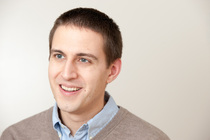
Nick Babladelis
Nick graduated Wake Forest University with a degree in chemistry. His honors thesis involved computer based molecular dynamics simulations. He is currently working towards a Masters of Divinity degree at Princeton Theological Seminary. He has made his way as a photographer, brewer, science teacher, web designer, graphic artist, and general jack of all trades. He has worked with community and urban garden projects in North Carolina, Kentucky and New Jersey, including Anathoth Community Garden, Seedleaf and the Georgetown College Community Garden. He is a cofounder and Director of Operations with ecotheo.org and The EcoTheo Review. Nick is particularly interested in issues of food and sustainability, and loves DIY projects. Christine Baver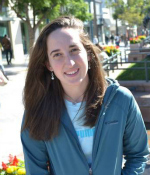
Christine is a MS student at Cornell University studying Environmental Engineering. Her work is motivated by the presence of preferential flow in Israel, which results in decreasing crop yield and increased contaminant transport. More specifically, she studies dynamic contact angles and how it relates to the onset and formation of preferential flow. Prior to her graduate work, she studied physics in Pacific Lutheran University (2009) and was introduced to environmental engineering through a summer internship as a park ranger in Pennsylvania and through irrigation research on campus at PLU. She is currently attends St. Luke and Graduate Christian Fellowship. Christine listens to nature through pottery, running, driving tractors for long extended periods of time, biking, planting, hiking, swimming and eating!
Christine took the summer off from grad school and spent the summer working on summer staff with Appalachia Service Project in Logan, West Virginia. She will be finishing up her MS in December, and hiking the Adirondacks and reading her Au Sable books in her spare time. Ryan Bebej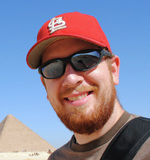
Ryan is a Ph.D. candidate in the Department of Ecology and Evolutionary Biology at the University of Michigan and has been involved with the Au Sable Graduate Fellows since 2006. He has broad interests in the evolution and paleontology of mammals, and his dissertation research investigates the functional morphology of fossil whales in order to better understand their evolutionary transition from land to sea. Ryan has a passion for teaching and has given a number of public lectures on evolution and the history of whales to Christian audiences around Ann Arbor and to undergraduate classes from his alma mater Calvin College. He has also served as a guest lecturer in the Environmental Ethics course at the Au Sable Great Lakes campus. Ryan enjoys outdoor sports, long walks at local parks with his wife Melissa and beagle Duncan, and photographing flora, fauna, and sunsets.
Stephanie Bertaina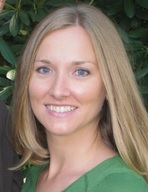
Stephanie is an Environmental Policy Analyst at the U.S. Environmental Protection Agency's Office of Sustainable Communities in Washington, D.C., where she seeks to align federal, state, and local policy to promote smart growth and sustainability in communities across the country. Stephanie received her Master's degree from the University of Michigan School of Natural Resources and Environment, where she focused on Environmental Policy and Planning. Her Master's thesis explored collaborative approaches to solving environmental planning challenges in the Intermountain West. Stephanie was an Au Sable Graduate Fellow from 2004-2006 during her time at the University of Michigan. She also was a student at the Au Sable Pacific Rim program while an undergraduate at Westmont College in 2002. Stephanie's passion for Christian environmental stewardship began through her experiences at Au Sable as an undergrad -- studying the marine mammals and field botany of the Pacific Northwest. She also spent a semester at the Creation Care Study Program (CCSP) in Western Samoa and New Zealand, which solidified her passion for conservation. Now, Stephanie continues her connection to Au Sable by serving on the Au Sable Board of Trustees.
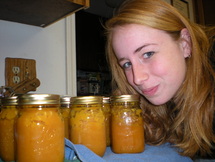
Erica Boldenow
Erica is a PhD student is Toxicology at the University of Michigan’s School of Public Health. She is studying the effects of Group B Streptococcus infection during pregnancy and the interactions it has with environmental contaminants. In practical terms, this means that she gets to attend c-section births and collect placentas. She spends lots of time in the lab, marveling at God’s wonderful and complex creation. Erica’s passion for the environment started in her youth, growing up amongst the redwood trees in northern CA and later the mountains in central Oregon. During her undergraduate at Calvin College, her favorite semester was spent in New Zealand and Samoa with the Creation Care Study Program learning about environmental issues and sustainable community development. After graduating, Erica worked for a pharmaceutical company in Oregon for a few months before moving to Gracias, Honduras to teach second grade. Any free time Erica gets is spent with friends and food (picking things, cooking, baking bread, grinding flour, rolling oats, canning) or being outside (hiking, backpacking, cross-country skiing, etc.)…but she feels best when she’s in a canoe or kayak. Kathryn Bomey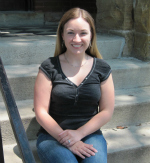
Kathryn is pursuing a master’s degree at the School of Natural Resources and Environment at the University of Michigan. She has a dual-concentration in behavior, education, and communication and in conservation biology, with plans to graduate in spring 2012. She is studying behavior change resulting from environmental education, communication, and outreach programs, as well as expanding her ecology background and field skills. Working in the forests of Vermont during a Nature Conservancy internship in summer 2011 strengthened Kathryn’s passion for conservation and helped her form an even deeper connection with the natural world. After earning her bachelor’s degree in journalism from Eastern Michigan University in 2007, Kathryn worked for three years as a reporter at a daily newspaper, where her interest in conservation developed as she wrote occasional articles about the environment. The daughter-in-law of a pastor (and wife of a P.K.), Kathryn enjoys playing the flute in her church’s orchestra.
Dietrich Bouma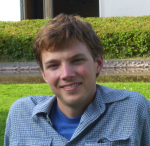
Dieter has been an active member of the Au Sable Graduate Fellows for the past three years while studying environmental policy at the University of Michigan. His passion for environmental sustainability and international development led him into a joint program between the School of Natural Resources and Environment and the Gerald R. Ford School of Public Policy as well as beyond it. During his program, he worked with rural communities in Nepal on climate change adaptation and disaster prevention strategies with the International Center for Intergrated Mountain Development (ICIMOD) and the United Nations Food and Agriculture Organization (FAO). Dieter is currently working as Au Sable Institute's Communications, Development and Recruitment Coordinator. He stays connected to nature through frequent bike rides throughout the countryside, camping with friends, and whenever he bites the dust during recreational league soccer games.
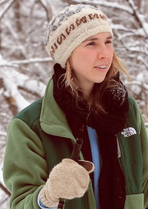
Sarah Brey
Sara Brey came to Ann Arbor via the University of Nebraska. A native of the town of Raymond, Nebraska, she is pursuing a masters degree in Landscape Architecture with a focus on landscape ecology of conservation lands. During her undergraduate time, she worked as an Outdoor Adventure leader and caught the bug of connecting people with nature. She has also worked as a camp naturalist in Unalakleet, Alaska, working with native Alaskan youth in developing an appreciation of the natural heritage of Alaska. She sees a strong connection between her love for Christ as nurtured in the church and her experience of God’s love and goodness through the created world. Sarah understands the concept of ‘place’ to be fundamental to connecting people to God through creation, and her work in landscape architeture will assist her goal of elevating love of creation in others. 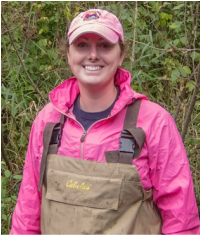
Whitney Conard Whitney Conard is a conservation ecology master's student at the School of Natural Resources and Environment at the University of Michigan. Her research and thesis center on assessing the effect that constructed spawning reefs in the Detroit River and St. Clair River have had on threatened catfish, the Northern madtom. Her interests include invasive species and restoration ecology in freshwater ecosystems. Prior to the University of Michigan, Whitney received her BS in biology from Indiana University with a focus on underwater resources management. Her continued love for biology is credited to her understanding that the intricate, complex ways that organisms fit together is due to God's fingerprint that he has left and continues to leave on nature. Through this profound love and respect for nature, Whitney feels called to care for the environment through her combined interests in research, conservation, and public outreach. 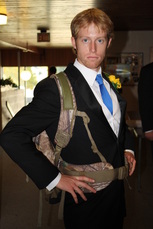
Dan Engle
Dan is a master’s student in the School of Natural Resources and Environment at the University of Michigan. His passion for creation has been evident ever since he was a little kid catching snakes and playing in the pond behind his parents’ house. Now that he’s grown up, there are few things that Dan enjoys more than watching a sunset from a deer stand and nothing invigorates his prayer life like a long walk in the woods. Inspired by the outdoors and informed by Scripture passages like Genesis 2:15, Dan’s Creation Care ethic led him to study biology and environmental studies during his undergraduate education at Calvin College and conservation ecology in graduate school. Throughout his studies he has been fascinated by the intricate ecological relationships in the natural world as well as concerned with how human activities have disrupted those natural processes. In between his bachelor’s and master’s degrees, Dan also spent four years working in the education field and discovered that he loved teaching and mentoring students. As such Dan is considering careers as either a wildlife biologist focusing on game species management or a professor teaching ecology courses (at Calvin!). When Dan is not studying, he enjoys spending time with his wife and doing anything “outdoorsy” including hunting, fishing, camping, birding, playing soccer and running. Brian Flanagan
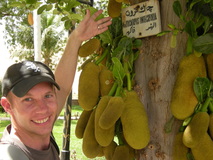
Brian is currently working towards a Masters in International Agriculture and Rural Development at Cornell University. He is studying mango production in Haiti; looking at how small scale farmers can continue to be involved in increasing their production for both the international and local markets while improving their local environmental conditions. Before returning to school, Brian worked seven years in Haiti on development and environmental projects with rural farmers and the urban poor. In Haiti he saw how the Christian community can be active in environmental stewardship in some of the toughest conditions. Brian and his wife Robin attend New Life Presbyterian Church in Ithaca. When not in Ithaca, Brian enjoys traveling to tropical countries and eating tropical fruit.
Michelle Gooch
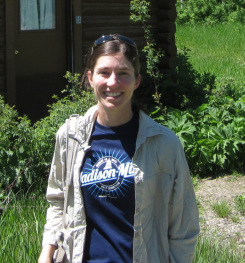
Michelle is a post-doctoral fellow in the Department of Forest and Conservation Sciences at the University of British Columbia. She is supported by and a member of TerreWEB, an interdisciplinary initiative to promote communication of global change issues to broad audiences. Her current research focuses on how climate change is affecting alpine habitat for birds and mammals on Vancouver Island. In the past, she has studied Southern Appalachian forest plants and community-based conservation in coastal Kenya. She became passionate about Christian environmental stewardship while interning with A Rocha Canada and taking courses at Au Sable Pacific Rim in the summer of 2005. She was active in the Au Sable Graduate Fellows group at the University of Wisconsin-Madison from 2006-2013, and is excited to be back in close proximity to A Rocha Canada where she can continue to have discussions about faith and environment, often while pulling out nonnative blackberry bushes or harvesting vegetables from their garden! She’s also thrilled to be living near mountains again, which she explores on foot or skis with her husband Steve.
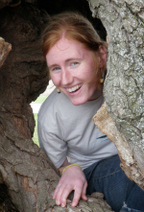
Allyson Green
Allyson is working on a joint MS in Environmental Justice and MS in Environmental Health at the University of Michigan. Her love for nature and interest in environmental justice stems from growing up in Baraboo, WI, a town rooted in a strong conservation history yet facing controversies over land use and environmental health issues. After graduating from Calvin College, where she spent a semester in New Zealand and Samoa with the Creation Care Studies Program, she moved to southwest Virginia to serve as a VISTA volunteer with the Appalachian Coal Country Watershed Team. She put her Secondary Science Education degree partially to work writing curriculum, doing community outreach, and learning birding and mandolin playing tips from her neighbors. She then spent a couple years doing environmental education and community outreach near Milwaukee before heading back to school. Allyson finds immense joy in small wonders and takes every opportunity possible to help cultivate a sense of wonder in others, even if that just means taking a minute to watch the squirrel antics during the morning walk to school. Abby Hart
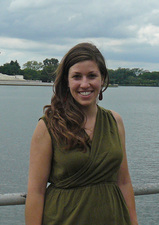
Abby is a graduate student in International Agriculture and Rural Development at Cornell University. She is studying how conflict affects socio-ecological relationships in agricultural landscapes, especially multi-stakeholder groups and their ability to adaptively management their landscapes to be more resilient to change. She sees her work as an opportunity to share the ways in which God’s restoration and shalom can be shown through international development. An Ohio native, Abby attributes much of her love for agriculture and the outdoors to her rural upbringing and her family. After graduating with a B.S. in Environmental Studies from Wheaton College, she worked with a rural agricultural development organization in Matagalpa, Nicaragua. Since moving back to the U.S. in 2010, Abby has worked at Cornell as part of the Ecoagriculture Working Group where she researches opportunities for integrating agricultural development, environmental conservation and socio-economic well-being for rural landscapes. Abby is actively involved in her local congregation, Christ Chapel, and Cornell’s Graduate Christian Fellowship. When she can escape work and studies she enjoys wandering around the many nearby state parks, and looks forward to cooking, gardening and salsa dancing with friends.
Greg Hitzhusen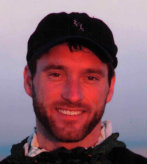
Greg is a lecturer in the School of Environment and Natural Resources at The Ohio State University, and is the Founding Director and Board Chair of Ohio Interfaith Power and Light. His work and research center on the intersection of faith and the environment and on developing parternships between scientific and faith communities; his teaching focuses on environmental communications and religion and ecology. Dr. Hitzhusen was previously the national Coordinator and co-founder of the NatureLink program at the National Wildlife Federation; co-founder of the Outings Club and Creation Spirituality groups at Yale Divinity School; Associate with the National Religious Partnership for the Environment; and Land Stewardship Specialist for the National Council of Churches EcoJustice Programs. Greg has a B.S. in ecology (Cornell), an M.Div. concentrating in ecotheology (Yale), and a Ph.D. in faith-based environmental education (Cornell, where he became an AuSable Graduate Fellow). He has taught courses on creation care and outdoor ministry at Yale Divinity School and Wesley Theological Seminary, and lives with his wife, Erica, and two sons (ages 2 and 5 yrs) in Columbus, Ohio.
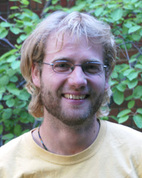
Aaron Iverson
Aaron is a current PhD student at the University of Michigan studying tropical ecology and agroecology, where his research takes him to southern Mexico to study biological control in coffee agroecosystems. He is interested in the intersection of ecology and social justice, which has led him to pursue issues relating to farming and food systems. Prior to beginning his graduate studies he worked as an intern at ECHO, a faith-based tropical agriculture training and resource farm, afterwhich he worked in agricultural development for a year in Mozambique. Aaron enjoys any opportunity he can get to escape into the outdoors and especially enjoys backpacking trips with friends. He currently attends the Campus Chapel in Ann Arbor. Sharon (Jaffe) Delcambre
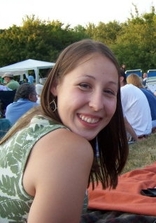
Sharon completed her Ph.D. in the summer of 2012 and is now living in the Portland, OR metro area. She is currently seeking permanent employment, hoping to teach Environmental Science or work in the field of community-based sustainability development. She will be teaching at Concordia University for spring semester 2013. In addition to work, she has joined the EcoFaith Recovery class for 2012-13 and is also learning about home fermentation and sprouting alongside her new husband Sean.
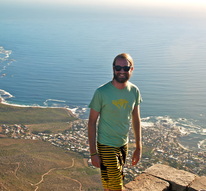
Jeff Johnson
Jeff Johnson is a native Oregonian who found his love of creation growing up near the Cascade Mountains and Deschutes River. After graduating from Azusa Pacific University with a degree in Theology, Jeff moved to South Africa, where he started a non-profit organization that provides employment through fashion. He currently resides in Princeton, NJ where he’s completing his Masters of Divinity at Princeton Theological Seminary. Following seminary, he hopes to pursue a Ph.D. studying environmental ethics, with a focus on the works of Wendell Berry, while maintaining involvement in his non-profit organization, Themba International. Bethany Laursen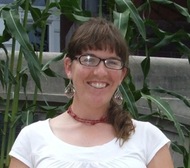
Bethany K. Laursen recently finished her M.S. in Environment & Resources and Forestry at the University of Wisconsin-Madison. With professional training in evaluation, facilitation, wilderness leadership and classical education, she is passionate about learning to live wisely in complex, high-stakes situations. She has been recognized for her abilities to analyze, weave, and leverage social networks to build collaborative capacity in organizations and communities. Bethany is originally from California but now lives in Maine, where she is pursuing work in environmental evaluation and collaboration consulting. Her scholarship examines interdisciplinary methods and training based on the Christine doctrine of the Trinity. http://www.bethanylaursen.com.
Heather Lumpkin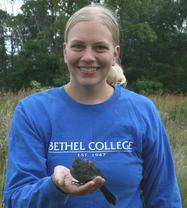
Heather recently completed a Masters at the University of Wisconsin – Madison studying birds in the mountains of western North Carolina. She is currently pursuing a second master’s in environmental education at the University of Wisconsin – Steven’s Point, and hopes that her future career will combine her interests in field ecology research and environmental education. Heather has the opportunity to live and work at an environmental stewardship focused semester school for juniors in high school (Conserve School) while pursuing her second masters. Conserve School, located in the beautiful Northwoods of Wisconsin, is an outdoor enthusiast’s paradise and Heather enjoys cross country skiing and snowshoeing in the winter and biking, hiking, camping, and birding in the warmer months. As an undergraduate student at Bethel College, she enjoyed taking field courses with Au Sable in Michigan and in Washington. She returned to Au Sable as an environmental education intern during the spring semester after finishing courses at Bethel College, and has enjoyed remaining connected to Au Sable and its mission through the graduate fellow program.
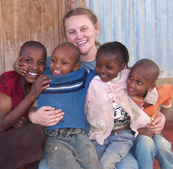
Amanda Lewis
Amanda is a doctoral student of African history at Michigan State University. She is working on the history of national parks and protected areas in Kenya. Her research combines multiple perspectives on the history of conservation, food and water security, pastoralism, and tourism. She focuses on Amboseli National Park in southern Kenya, where she partners with Noomayinat Community Based Organization, studying the historical relationship of the Maasai and the park. She has a B.A in history and secondary education from King College and an M.A. from East Tennessee State University in African history. Amanda believes that it is important to study how people, whose livelihood is intricately linked to land and wildlife, understand stewardship of the environment. Aaron Larsen
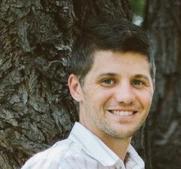
Aaron is currently working towards a Master's degree in International Agriculture and Rural Development at Cornell University. His focal subject is the integration of crop and livestock systems for a sustainable agriculture in Central Africa. He earned a B.S. at Penn State in Agricultural Science, minoring in International Agriculture. Since graduation in 2006, he has worked teaching outdoor education and natural science from a Biblical perspective to junior high groups in California and more recently as an agriculture conservation technician in Lancaster, Pennsylvania. He and his wife of five years, Michelle, recently returned from serving for two years at a job training center for widows and orphans in the town of Gemena, Democratic Republic of Congo. While there, they were blessed by the birth of their first child, a daughter named Soleil. Aaron and Michelle are on staff with ReachGlobal, the mission agency of the Evangelical Free Church of America. They are preparing to return to Africa for further work empowering indigenous church planting movements through agricultural development.
Josh Miller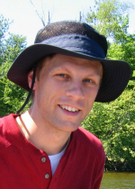
Josh is a current MS student in Environmental Policy and Planning at the University of Michigan SNRE. His love for the natural world began in rural Michigan on camping, hunting, and fishing trips with his father. His love for spiritual restoration began in a small, rural youth ministry, and grew during his years as an undergraduate at Huntington University, IN. Following graduation, Josh and his wife, Andrea, moved to Syracuse, NY, where he served as an associate pastor. Disillusioned with a faith that separated the spiritual and the physical, he moved to Asbury Theological Seminary, KY, where he earned a MA degree in Biblical Studies, focusing on religion and the environment. This experience birthed a desire to work as a person of faith toward environmental stewardship and justice revolving around freshwater policy. He is interested in pursuing a career with a NGO in watershed policy and management, and plans to eventually work with an international NGO that aids community-based organizations in developing countries with education, networking, resources, and expertise. He is especially fond of his three children, of gardening, of health, and of sustainable living.
Samantha Miller
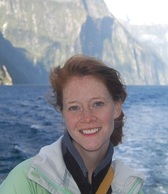
Samantha is a first year MS student at the University of Michigan in the Environmental Justice track of the School of Natural Resources and Environment. She began exploring the intersect of environmental development and social justice issues while studying at Calvin College, where she studied Biology and International Development. Samantha's desire to further gain an understanding of the entwining of these issues led her to an AmeriCorps program in which she served alongside others doing environmental and community outreach. She spent a year working with the Animal Rescue League of Boston before moving to New Zealand to work with the Creation Care Study Program (CCSP) as the Ethical Food Coordinator. The two years spent in the New Zealand and CCSP community confirmed her desire to both study issues of environmental justice and find ways to live out right relationships with all of creation. She enjoys hiking, cooking, dairy products, finding creative outlets, and (in warmer months) sitting on her front porch.
Anna Mitterling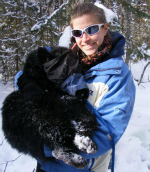
Anna Mitterling is currently pursuing a Master's degree at Michigan State University in the Fisheries and Wildlife Department. Her focus is on deer cooperatives in Michigan and how being part of a group may effect individual hunter behavior. She received her bachelor's degree from Spring Arbor University, where she attended the Au Sable Institute for a January Term and had a great experience! Anna emulates Christ's love when working with people in wildlife management. Her care for the people she interacts with allows them to listen to and respect what she has to say. She connects to nature on a regular basis by immersing herself in it, through hiking in the full colors of fall or a cross-country skiing over a fresh coat of snow. The magnificent beauty is stunning and reminds her of our Creator.
Anna Noveroske
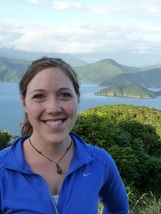
Anna is currently a MS student in the Botany and Plant Pathology department at Purdue University where she is working to develop a fungicide sensitivity monitoring program for the disease Fusarium Head Blight of wheat. Her broad interests include using plant pathology and agroecology as tools in sustainable international development, as well as working with the Church to bring about a better understanding of creation and how to care for it. She completed her BS in biology at Indiana Wesleyan University (IWU) in 2012. During her undergraduate years she was an active member of the John Wesley Honors College and became a founding member of the Creation Care Alliance, a student organization focused on promoting sustainability and environmental awareness within the IWU community. She also had the opportunity to study abroad in New Zealand and Samoa through the Creation Care Study Program during the spring of her junior year, an experience that furthered both her love for exploring and her understanding of the connection between creation care and whole, Christ-centered living. She is currently a member of Intervarsity Graduate Christian Fellowship and enjoys hiking, cooking, learning, traveling, and drinking copious amounts of coffee.
Erin O'Brien
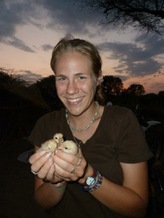
Erin is a current master's student at the School of Natural Resources and Environment at the University of Michigan. She is pursuing a degree in conservation ecology and is interested in studying the complex relationships between humans, animals, and the environment. Erin studied health science and environmental science as an undergraduate at Kalamazoo College. She loves traveling and has spent time in France, studied abroad in Kolkata, India and volunteered for a wildlife conservation non-profit in Iringa, Tanzania. As an academic, she hopes to incorporate social justice and policy issues into ecologically based work. Erin plans to embark on research this summer studying savanna vegetation dynamics under different off-take methods in Maasai-Mara Kenya. While not in the classroom or the field, you can find her running, practicing yoga, cooking, crafting or lost in a good book.
Mozhgon Rajaee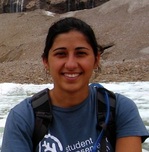
Mozhgon is pursing a joint Master of Science in Environmental Policy and Planning and Master of Public Health in Environmental Quality and Health at the University of Michigan. She graduated from Spring Arbor University in 2007 with a BA in Biology and global studies. Her current research is on mercury exposure (in humans and the environment) in a small-scale gold mining community of northeast Ghana. She is actively involved with Trinity Church of Livonia and sits on their Blue-Green Committee, an environmental ministry of the church. She is most connected to nature in the quiet moments she takes to escape to wooded areas with creeks or rivers when she wants to feel the most engulfed by nature.
Janet Rice Barclay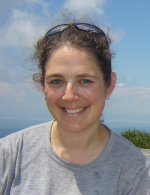
Janet is a graduate student in Environmental Engineering at Cornell University. As part of the Soil and Water Lab, her research interests include studying how stream restoration and climate change impact the microbial processes of removing nitrogen from soil and water, and utilizing community volunteers to assess restoration success. She received her BS in Biomedical Engineering (Chemical Engineering Concentration) from Johns Hopkins University in 1999, and then a certificate in Leadership and Camp Ministry through Wheaton College at HoneyRock Camp. Afterwards, she worked in campus ministry with InterVarsity Christian Fellowship and as an associate pastor at St. Andrews Christian Church. One of her highlights from this season was developing and leading an outdoor adventure and cross-cultural service trip to introduce students to the environmental and justice issues facing the Penobscot Indian Nation and the Penobscot River. Her tenure in vocational ministry gave her a deeper appreciation for the natural world and the interactions between the many members of ecological communities and she is excited to bring that value to her scientific work. Janet is refreshed and restored by most anytime outside in natural settings, but she especially enjoys extended trips hiking, paddling, or back-country skiing, either alone in the quiet (for short trips) or with her husband and son (in the not so quiet).
Brian Schaap
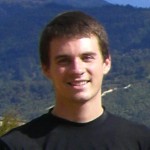
Brian is pursuing a MS degree in Environmental Policy and Planning from the University of Michigan School of Natural Resources and Environment. After graduating from Calvin College having studied both biology and religion, Brian spent a year in East Africa working with the Mennonite Central Committee in Tanzania. His work there centered on the development of an agriculture and economic development project in partnership with the local Tanzanian Mennonite church. This experience confirmed for Brian his desire to work internationally at the intersection of conservation and development, and compelled him to pursue further interdisciplinary studies at SNRE which would equip him for this work. Brian’s personal and academic interests in science and theology translate into a strong desire to educate and mobilize the church to better fulfill its mandate to be faithful and responsible stewards of God’s creation. When needing a break from reading and studying, Brian finds fulfillment and renewal in spending time in the beauty of the outdoors, either going for a walk through the woods or a long bike ride on scenic country roads.
Jonathon Schramm
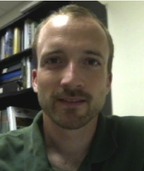
Jonathon graduated from Calvin College in 2001 with degrees in Biology and German before moving to the Garden State, where he completed a Ph.D. in Ecology and Evolution from Rutgers University in 2008. His doctoral work examined the complex relationships between land use legacies, soil characteristics and contemporary plant communities, especially as they pertain to the degree of invasive plant presence. For the last three years he has been a postdoctoral scholar at Michigan State University, working on a variety of projects related to improving biology and ecology education at secondary and post-secondary levels. One of his biggest passions has always been teaching, and the opportunity to deepen his own teaching philosophy while making concrete improvements to biology instruction has been very gratifying. Beginning in college, he has worked to help his fellow church members understand the depth and importance of God’s call on all Christians to be stewards of the creation, and even had a bit part in a documentary around that theme titled Renewal! His favorite moments in creation involve time in mixed deciduous forests, at any season of the year.
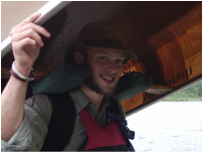
Nate Sell
Nate Sell is currently working towards his Masters of Divinity degree at Princeton Theological Seminary. He is a graduate of Sewanee: The University of the South. It was at Sewanee that Nate first began to truly be cognizant of the importance of place, though his love of Creation has been many years in the making. His interest and love of the natural world were cultivated from his experiences in Scouting (he’s an Eagle Scout), being a canoe guide in the Boundary Waters and Quetico Parks, thru-hiking the Appalachian Trail, hiking 1,000 miles on the Pacific Crest Trail, snowshoeing in the San Juans, and other wilderness ventures. He is particularly interested in the spiritual importance of Wilderness Pilgrimage and how it affects one’s relation to Creator, Creation, and self. Jennifer Senglein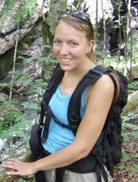
Jennifer is a Ph.D. student Wildlife Ecology at University of Wisconsin - Madison. She works with Dr. Tim Van Deelen on the population dynamics of Wisconsin’s wolves. In particular, she is studying the survival of radio-collared wolves as it relates to habitat quality, and how potential harvest scenarios would affect the wolf population’s viability. Previously, she received a B.S from Grove City College in Pennsylvania in Biology and Secondary Education (2006), and a M.S. from the University of Idaho in Environmental Science (2009), where she was working on a noninvasive genetic sampling monitoring program for wolves in Idaho. Jennifer’s inspiration for Christian environmental stewardship began during high school involvement in the Roots and Shoots Environmental Service club. Her desire to care for Creation really blossomed after revamping the environmental club at her undergrad Christian campus and during a couple of glorious summers working with A Christian Ministry in the National Parks in Yosemite and Yellowstone. In her free time, Jennifer enjoys biking and cross-country skiing around Madison, fermenting food and drink, cooking and eating local food, and getting outside as much as possible.
Paul Simonin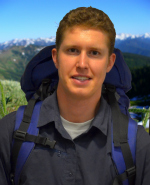
Paul is a PhD student at Cornell University studying aquatic ecology and fisheries, and is conducting research in the Great Lakes of North America and subsistence fishing communities in Southeast Asia. He first became interested in Christian conservation work while growing up in the Adirondack region of New York State and interacting with seemingly disparate church and conservation circles. His more recent work in Southeast Asia has been a particularly appropriate venue for studying how differing worldviews affect human relationships with land/seascapes and places. In Ithaca, Paul is involved with New Life Presbyterian Church and Cornell’s Graduate Christian Fellowship. He enjoys a range of outdoor activities from hiking and skiing to kayaking and diving, and though graduate school can be wonderful, he escapes Ithaca for these and other adventures whenever possible.
Stephanie Steinhoff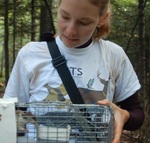
Stephanie received her Master's in Forest and Wildlife Ecology from the University of Wisconsin-Madison where she focused on how flying squirrel populations respond to forest management patterns. Prior to attending the University of Wisconsin, she received a B.S. in Biology from Azusa Pacific University and held various positions with state and non-profit conservation organizations. While at Azusa Pacific, she spent two summers taking courses at the Au Sable Great Lakes and Pacific Rim campuses. Spending time in nature and realizing how awesome God is as the Creator of all things gets her excited. Whether doing field research, recreating, or just sitting and listening, she enjoys seeing the story of God's love and character displayed in nature.
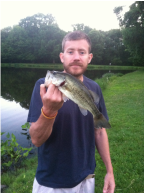
Will Wellman
Will received his BS in Environmental Horticulture Operations from the University of Florida. After internships with the National Park Service and the Audubon Society, he decided to pursue further studies in conservation. This led to the University of Kentucky where he received a MS in Forestry. Will's primary focus at UK was invasive exotic plant biology and management. A growing interest in theology, particularly around ecological and food issues, led to Princeton Theological Seminary where Will is currently pursuing a Master of Divinity. A main focus for WIll at PTS has been connecting faith and ecological communities through shared concerns and goals. Will is also interested in the utilization of poetry as a means for the re-introduction of a sacred worldview. In his free time, Will enjoys fishing, kayaking, camping, and silence. Brook Wilke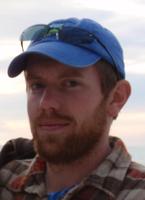
I recently acquired my Ph.D. in Agroecology from Michigan State studying cover cropping with legumes and perennialization of grain crops, and have a Bachelor of Science from Nebraska Wesleyan in Biology (2004) and Associate Degree from Central Community College - Nebraska (2002). I currently work for the Department of Education at Michigan State working on research projects aiming to improve environmental literacy among K-12 and college students. I also run a small farm including vegetables, eggs, chickens, pigs and goats, and manage the local farmers' market (Richland, MI). My wife (Emily) and two boys (Charlie - born in 2008) and Wendell (2010) are members attend the Gull Lake Area Community Church in Richland, MI. I have taught integrative sessions in the past at the Au Sable Great Lakes campus, focusing on sustainable agriculture, and continue to work towards sustainable agriculture in our local community in several ways. The farm is also where I connect with nature and God, the bounty of food that the land provides, yet the sensitivity of the land to our management of it.
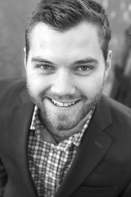
Curtis Witek
Curtis is a current master’s student in the University of Illinois at Chicago’s Department of Urban Planning and Policy. His graduate research focuses on the function of urban water systems within the context of complex urban ecosystems. Curtis studied Environmental Studies and Urban Studies at Wheaton College (‘12) and earned a certificate in Land Resource Analysis while attending the Au Sable Institute of Environmental Studies as the Calvin B. DeWitt Leadership Fellow. His previous professional experiences include urban ethnographic research at the Field Museum of Natural History, transportation research at the Center for Neighborhood Technology (CNT), watershed planning and organizing at Friends of the Chicago River, and outdoor recreation planning with the National Park Services’ Rivers, Trails and Conservation Assistance (RTCA) Program. In his free time, Curtis enjoys exploring Chicago’s neighborhoods, playing music, and riding his bike. Sara Wyse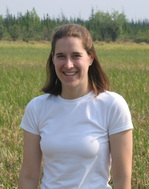
Sara received her PhD in Plant Biology & Ecology, Evolutionary Biology and Behavior at Michigan State University in 2010. Her dissertation work investigated how graduate teaching assistants (TA) are prepared to teach undergraduate biology courses by evaluating two contrasting models of TA professional development. Currently, Sara is an assistant professor at Bethel University in St. Paul, MN, where she teaches introductory biology courses for majors and non-majors. As an undergraduate Sara had the opportunity to attend Au Sable Great Lakes for two summers, both of which were influential in her pursuit of graduate school, her passion for environmental stewardship and her relationship with God. Sara and her husband Adam attended Riverview Church in Holt, MI, before moving to MN, and are praying about calling Substance Church (here in MN) home. One of their great passions is spending time outside hiking, biking and walking. They enjoy the opportunity to connect with one another and with God as they stroll through His creation. In addition, they are avid cooks/bakers and enjoy eating natural and non-processed foods! Sara and Adam cook from scratch and have found great joy in the kitchen as the Lord has taught us about healthy nourishment for ATP!
|
Connect on Linkedin!Find out where other grad fellows are and what they're doing. Connect with other graduate fellows through our Au Sable Graduate Fellows Linkedin Group. Make a request to join the group and our administrator will approve you. You can also connect to one of our University sub-groups to connect with other grad fellows who attended your alma mater.
|
Christine Yaeger
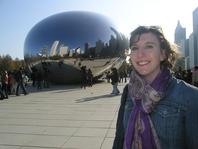
Christine presented her Plan B thesis for her Masters in Natural Resources Science and Management in April, "Evaluating Watershed Outreach Interventions in the Lower Kaskaskia River Watershed" and completed her thesis in September. In between she started a job as a Project Associate at the Minnesota Department of Agriculture developing a Water Research Digital Library to serve as a one stop access point for research articles, and has enjoyed working on the project immensely. This fall she will attend the American Evaluation Association Conference in Minneapolis (in case any Au Sable folks will be in attendance!) Christine was also the lead instructor for the University of Minnesota Institute on Global Studies week-long teacher professional development course "Water quality and the environment." She is currently enjoying the fall colors in Minnesota through photography and hiking, and just had her first lesson pickling peppers and canning salsa!
David Young
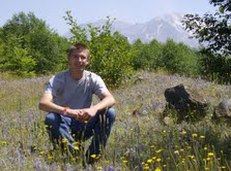
David is pursuing a Master’s degree at the Department of Geography at Michigan State University. His research investigates how climate change might impact agriculture in the Great Lakes region, particularly the growth of short rotation woody crops for the production of cellulosic ethanol. David’s interest in environmental stewardship began in earnest while studying geography as an undergraduate at Calvin College. David is involved with the music ministries at River Terrace Church in East Lansing and is interested in exploring how creation care can be more actively integrated into corporate worship. He finds he is most connected to nature when spending time exploring the physical landscapes found in creation and has spent the past two seasons on the mountains, coasts, and glacially carved valleys of Acadia National Park working as an interpretive park ranger.
_
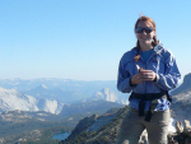
Leah Zimmerman
Leah is a dual degree student at the University of Michigan, jointly pursuing an MS at the School of Natural Resources and Environment and an MBA at the Stephen M. Ross School of Business. She is motivated professionally by both a deep appreciation for her role as a steward of Creation and by a desire to provide faith-enriching experiences in nature for future generations. Leah received a BA in Russian and East European Studies from Yale University and studied Russian Language and International Relations as a Rotary Ambassadorial Scholar at Far Eastern State University in Vladivostok, Russia. After an adventure-filled conservation career in Siberia and the Russian Far East, Leah realized that she wanted to return to her home state — Michigan — and to spend her efforts protecting the region's rich natural resources and growing vibrant local communities. Before coming back to Michigan, Leah served as Russia Program Director and Interim Executive Director for San Francisco-based Pacific Environment, worked as an independent consultant for Portland-based Wild Salmon Center, taught English and volunteered for organizations in Siberia, and interned for Yale Students for Christ. In her spare time, Leah enjoys playing and coaching soccer, experimenting in the kitchen, backpacking, and cycling on quiet country roads.
Leah is a dual degree student at the University of Michigan, jointly pursuing an MS at the School of Natural Resources and Environment and an MBA at the Stephen M. Ross School of Business. She is motivated professionally by both a deep appreciation for her role as a steward of Creation and by a desire to provide faith-enriching experiences in nature for future generations. Leah received a BA in Russian and East European Studies from Yale University and studied Russian Language and International Relations as a Rotary Ambassadorial Scholar at Far Eastern State University in Vladivostok, Russia. After an adventure-filled conservation career in Siberia and the Russian Far East, Leah realized that she wanted to return to her home state — Michigan — and to spend her efforts protecting the region's rich natural resources and growing vibrant local communities. Before coming back to Michigan, Leah served as Russia Program Director and Interim Executive Director for San Francisco-based Pacific Environment, worked as an independent consultant for Portland-based Wild Salmon Center, taught English and volunteered for organizations in Siberia, and interned for Yale Students for Christ. In her spare time, Leah enjoys playing and coaching soccer, experimenting in the kitchen, backpacking, and cycling on quiet country roads.



